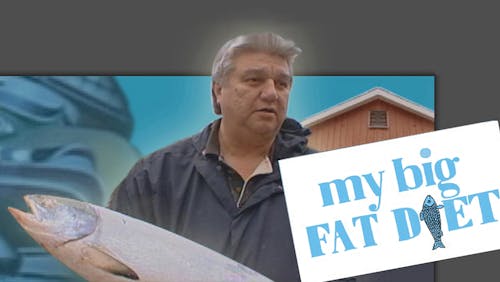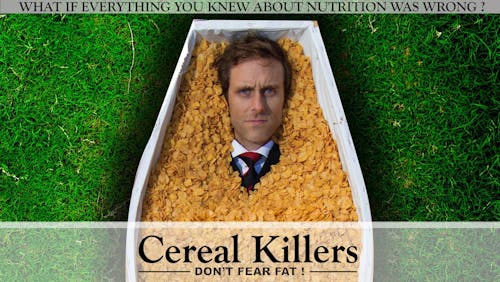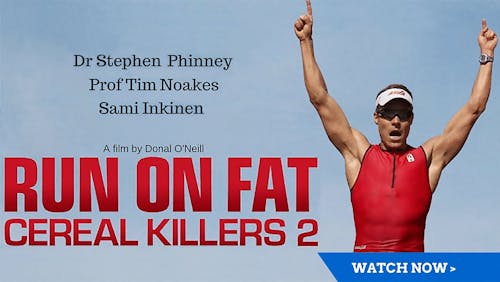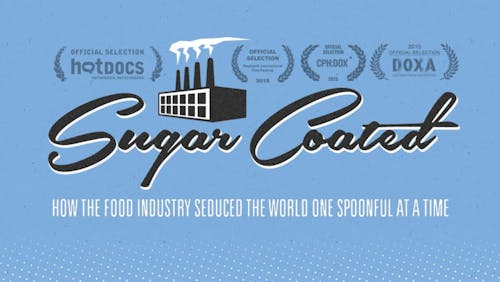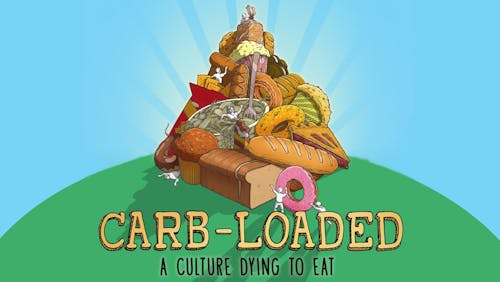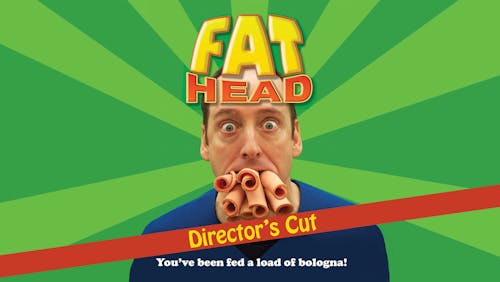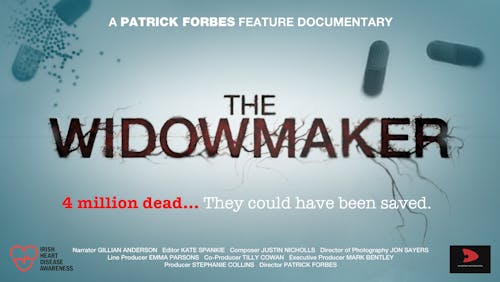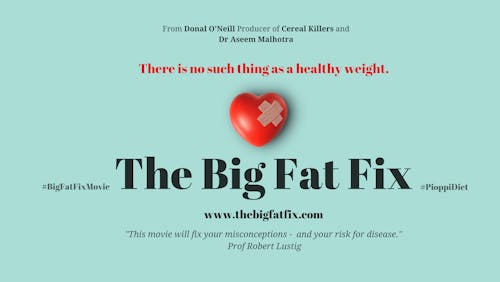Fat Fiction review: A message of hope
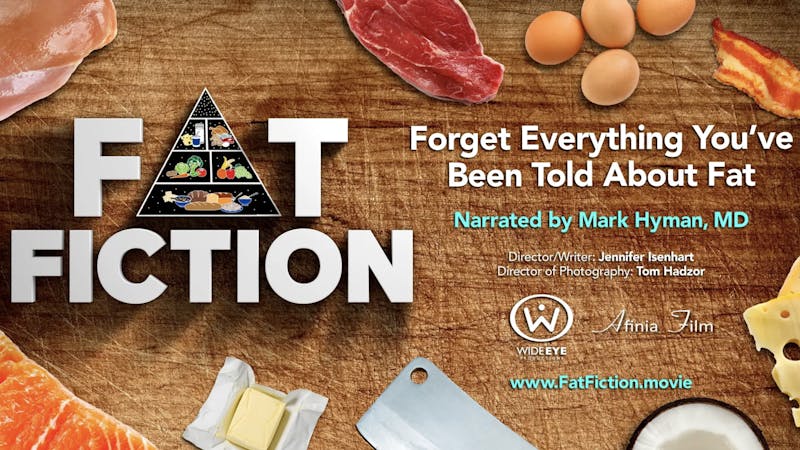
The new documentary, Fat Fiction, has many moments that had me cheering: Dr. Brian Lenzkes hugging his patients; registered dietitian Alyssa Gallagher puzzling over her patients’ past lack of success; Dr. Sarah Hallberg, an obesity expert, emphatically refusing to accept the idea that diabetes is inevitably a progressive, irreversible disease.
These moments support the movie’s strong underlying message, which is that low-carb diets are powerful interventions for improving health. But this message is often lost in the film.
As a registered dietitian with a background in nutrition, public health, and communication, here’s my breakdown of Fat Fiction’s successes and mistakes.
Key takeaway from Fat Fiction: transforming lives with diet
The film shines when it follows healthcare practitioners who are using low-carb nutrition to improve their patients’ persistent health problems. In those moments, we get an inside look at a persuasive and compelling reality: These patients and their healthcare practitioners have transformed their lives with a simple dietary intervention.
Patients beam as they report on their progress: reduced or eliminated medications, weight loss, and excess hunger and cravings gone. The doctors and dietitians smile broadly as they describe the deep satisfaction that comes from seeing their patients heal.
For these patients, the usefulness of low-carb diets in tackling obesity and type 2 diabetes is clearly established. For these clinicians, low-carb nutrition has them loving their jobs once again.
Carbohydrate restriction returns
These individual successes are reflected in the movie’s message of hope: Awareness of how dietary carbohydrate reduction can benefit those with obesity and diabetes is slowly being reinstated into the clinical aspects of mainstream nutrition.
As the movie notes, one huge step forward came in 2019: the American Diabetes Association acknowledged carbohydrate reduction is the key to blood sugar control — without any negative caveats about low-carb diets.
Changes within the low-carb community reinforce that progress. The filmmakers interview Doug Reynolds, founder and CEO of Low Carb USA, who recently led a project to create clinical guidelines for low-carb nutrition (full disclosure: I assisted with this project).
According to Reynolds, the clinical guidelines have given many doctors the confidence to take up low-carb diets as an option to offer their patients. Diet Doctor’s new continuing medical education course on low carb and metabolic conditions serves a similar purpose.
“Eating less and enjoying it more”
As Dr. Mark Hyman, the film’s narrator, says: “Nutrition is actually pretty simple. Your body needs protein, and protein comes first. That’s essential. But then you can choose to run your body on carbohydrates … or fats. And it’s your choice.”
The movie shows how low-carb diets can be a godsend for those who find that their bodies work better running on fat. These diets dramatically limit the hormonal response from insulin that often comes with running your body on carbohydrates, an important quality for people with metabolic conditions that involve insulin, like obesity and diabetes.
Furthermore, as the film demonstrates, although any well-designed diet can lead to weight loss, a low-carb diet isn’t just about cutting calories. Carbohydrate reduction can also help lower insulin levels, improve blood sugar, and prevent the hunger pangs that go with reducing overall caloric intake.
One patient sums it up this way: “I’m eating less and enjoying it more.” This is no surprise: Low-carb diets focus on getting adequate protein and high-fiber veggies — both known to promote feelings of fullness — at nearly every meal.
As for fat, it adds flavor to food and, in a low-carb diet, contributes the calories needed to feel full. On a low-carb diet, fats — even the saturated kind — are not restricted.
But fat itself isn’t magic. The real magic comes from restricting carbohydrates. Despite what Dr. Hyman says, eating fat doesn’t “speed up your metabolism.”
Moments like that, when the movie stretches facts to fit the “if low carb is good, then low fat must be bad” narrative, trouble me.
A critical take on Fat Fiction’s claims
As someone who dreams of low-carb nutrition being restored to its rightful place as a dietary intervention for chronic disease, I wanted this movie to be the last, best word on the subject. I have to confess, there was a lot of discussion at Diet Doctor about whether I should offer any strong criticism about a film that the low-carb community has embraced.
But too many moments in the film made me squirm as yet another inaccuracy about dietary guidelines and “the low-fat diet” was repeated as “fact.”
In some ways, the filmmakers are not entirely to blame for this. Many of these inaccuracies get passed around low-carb forums without question. For most of us, there’s a strong human tendency to ignore nuances that don’t fit a desired narrative.
The most pervasive example of this tendency is the movie’s take on the Dietary Guidelines for Americans, the public health nutrition policy that defines what the US government considers to be a “healthy diet.”
The last 40 years of dietary policy in the US have undoubtedly made it difficult for healthcare providers to use low-carb diets to help patients. But when the movie shifts away from real-life patient-provider interactions to the abstract notion of a national nutrition policy, it goes astray.
A policy is not a diet; populations are not patients
At no point does the movie try to explain how public health nutrition policy and clinical nutrition care are alike, different, or related to each other. Maybe you’ve never considered it yourself. But this missed opportunity is central to the problem the film is trying to untangle and to the current distressing state of nutrition guidance in general.
Case in point: The documentary indicates that, in 1961, the American Heart Association (AHA) began “telling people to cut back on saturated fat and cholesterol in order to prevent a heart attack.”
But, it fails to note that this recommendation was strictly for a clinical population, specifically those who needed to lose weight, had a family history of heart disease, or had suffered a heart attack or stroke.
This 1961 AHA recommendation states, “significant changes in diet should not be undertaken without medical advice” and that reduction or control of dietary fat should be done “under medical supervision.”
Problems arose when the AHA’s dietary guidance, initially intended for a clinical population, became part of public health nutrition policy. A diet that calls for reduced fat, saturated fat, and cholesterol may have been appropriate for some identifiable individuals, but this clinical intervention should never have been repackaged as national dietary guidelines.
Dietary guidelines are guidance for food manufacturers
Many of the film’s participants seem to understand how public health nutrition policy differs from a diet. Dr. Robert Lustig, a pediatric endocrinologist, gets it right when he points out that dietary guidelines serve as guidance for the food industry. Food manufacturers can make cheap, tasty, nutrient-poor food products and, with the backing of the guidelines, market them as “healthy.”
But the movie claims, “Not only did the low-fat diet not work, it did us harm and resulted in greater obesity and disease.”
By placing the blame on “the low-fat diet” (as if there is only one), the movie perpetuates the mistaken notion that the escalating rates of chronic disease in America exist because America, as a nation, carefully followed the advice of national nutrition policy. But it’s not that simple.
Low-fat, but also low-sugar
Fat Fiction blames the low-fat focus of the guidelines on Ancel Keys, a physiologist and epidemiologist — mistakenly identified by the film as a pathologist. But Keys’s theory was just one of those represented in the guidelines. Also featured is John Yudkin’s work, which makes the case that sugar consumption is at the root of many chronic diseases.
McGovern’s 1977 Dietary Goals did urge Americans to reduce total fat from 42% of calories to 30%. The Goals also recommended that “refined and processed sugars” be cut, from 18% to 10% of calories, the same low level as the recommendation for saturated fat.
But America never actually ate “the low-fat diet” that Fat Fiction thinks is to blame for current high rates of chronic disease. Nor did America lower its intake of sugars as recommended.
Getting the guidelines wrong
Instead, beginning around 1980, Americans ate more calories, much of which came from increased consumption of starchy carbohydrate foods. But not because “the first Dietary Guidelines recommended seven to 11 servings of bread every day,” as the movie claims. (Read them for yourself and see. The “Food Pyramid’s” recommendation of seven to 11 daily servings of starch emerged over a decade later, in 1992.)
Why conflate the Food Pyramid with the Dietary Guidelines for Americans?
Perhaps that accuracy was sacrificed for the sake of preserving the narrative that reducing our intake of fat is what caused, beginning in 1980, a rapid increase in many chronic diseases. But this misconception doesn’t hold up to close examination.
Yes, Americans ate more starchy carbohydrate foods as directed. This means that when fat intake is viewed as a percentage of total calories, the increase in overall calories makes it look like Americans lowered their intake of fat. But in terms of absolute amounts, on average, Americans did not eat less fat.
Further research could have clarified that matter and perhaps also alerted the filmmakers to the fact the guidelines stopped using the term “low-fat” 20 years ago and switched to the term “moderate-fat.”
On the other hand, it’s hard to blame the movie’s creators for reporting that the most recent edition of the guidelines “removed the cap on dietary fat consumption.” Even nutrition experts such as Walter Willett get this wrong.
In fact, the guidelines still limit fat to 35% of total calories. In this case, it would have been in the movie’s best interest to get this point right because the mistake undermines the film’s argument that America’s nutrition policy continues to promote “the low-fat diet.”
Fat and fiction
The movie does make a persuasive case that there is virtually no evidence for these limits on total dietary fat — and the even stricter limits on saturated fats. But at the same time, the film makes scientifically unsupported claims about “refined vegetable oils,” which the movie warns are “known to cause heart disease and cancer.”
Diet Doctor has done a full review of the evidence on vegetable oils and health. We recognize that it is a contentious topic in the low-carb community and suggest you come to your own conclusions about it.
The film goes on to feature Dave Asprey, the founder of Bulletproof Nutrition Inc., who wants you to add his Bulletproof-branded “purified coconut oil” to your morning coffee. Ironically, this oil is also “highly refined” (check the label), yet presented as safe.
“High-quality poop”
In a cringe-worthy moment that should have ended up on the film’s cutting room floor, Asprey explains that grass-fed animals produce “high quality poop,” which makes “high-quality vegetables,” leading Asprey to assert that “vegetables … that don’t come from farms that work like this are vegetables devoid of nutrients.”
Better research — or editing — would have spared us these claims. The recurring shots of “headless” fat people each time “the obesity crisis” is mentioned are another unfortunate editorial choice, which is only partly softened by the fact that individuals with similar body shapes are allowed their full humanity at other points in the movie.
I’ll end the critique with one final style note. Most healthcare providers typically avoid terms like “type 2 diabetics,” in favor of phrases like “people with type 2 diabetes.” This is an oversight we have done in our own content at Diet Doctor, and we vow to be more mindful of it moving forward. Individuals are not their health conditions.
“It’s your health”
To be clear, these missteps take nothing away from the stories of the individuals for whom low carb has been a life-changing experience. There’s no need to beat up “the low-fat diet” to show that low-carb diets can be incredibly beneficial for many.
Low-carb diets were valuable for treating obesity and diabetes long before the dietary guidelines decided that all Americans should limit fat and lifestyle gurus told us to dump it in our morning coffee.
Ultimately, it’s well worth stepping around the movie’s “high quality poop” to hear directly from the clinicians and patients whose lives have changed dramatically through low-carb nutrition.
Despite the fact that America, as a population, did not lower its fat intake, that doesn’t mean a national nutrition policy that recommends a low-fat diet for everyone is a good idea. Many individuals did valiantly try to follow a low-fat, low-calorie diet — only to find that it left them hungry and tired, with health problems that got worse instead of better.
Virtually every clinician who works in low-carb nutrition has had a patient like this. Some clinicians, like Dr. Lenzkes, have been down that road themselves.
But for the population as a whole, maybe the problem isn’t “the low-fat diet,” as the movie suggests. Maybe the problem is that, in 1980, nutrition policy took dietary guidance about metabolic health out of the hands of clinicians and created a one-size-fits-all approach that profoundly affects both our food environment and our ideas about what is “healthy.”
The individuals we meet in the movie demonstrate how misguided this approach is. With dietary advice that is right for them, they are — slowly, steadily — getting their lives back.
At Diet Doctor, we aim to provide a trustworthy alternative to the one-size-fits-all message of the dietary guidelines. Our job is to help people learn about the power of low-carb nutrition and make it simple to incorporate into their lives.
As Dr. Lenzkes counselled his patient in Fat Fiction, “It’s your health. We can do it as individuals.”
Please let us know what else we can do to help you succeed.
Thank you for reading,
Adele Hite PhD MPH RD
Watch Fat Fiction
Start your FREE 7-day trial!
Get delicious recipes, amazing meal plans, video courses, health guides, and weight loss advice from doctors, dietitians, and other experts.
Join now
